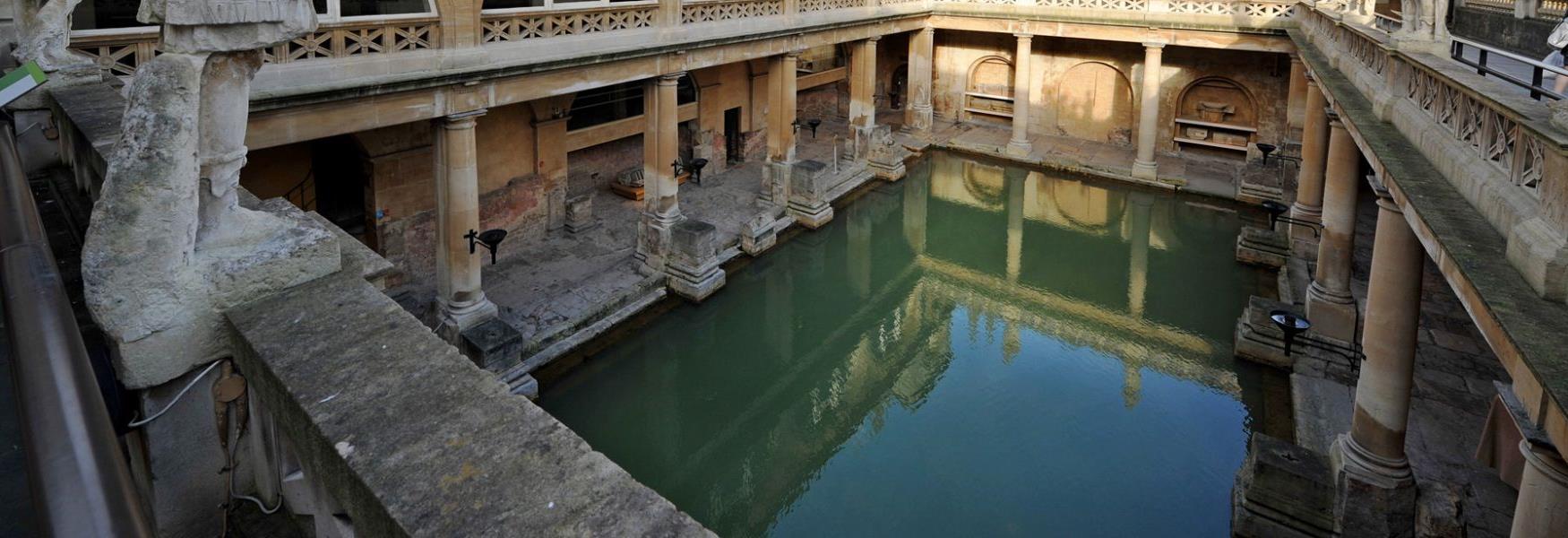To build your own Itinerary, click  to add an item to your Itinerary basket.
to add an item to your Itinerary basket.
Already saved an Itinerary?



You are here: UK History > Roman Britain > Roman invasion
Although the Romans had visited Britain prior to the invasion, they didn’t launch a full scale attack until AD43 under the Emperor Claudius, it took 45 years for the legions to fully take over Britain, initially beginning in England and Wales and then eventually taking Scotland.
Eventually, the Romans established a new society, known as Britannia, which remained a part of the Roman Empire until 5th Century. Before the invasion, Britain didn’t have a singular political or cultural identity, the people living there all appeared to live in tribes, with their own leadership structure and controlled their own territories, sometimes aggressively.
Julius Caesar was one of the first Romans to visit Britain. He came to know about Britain and how it was run while taking part in battles in Gaul in around 50BC. These battles brought areas that would now be part of modern day France, Belgium and Switzerland into the Empire.
We know that Caesar went on at least two military campaigns to Britain prior to the invasion, where he gained knowledge of the landscape of Southern Britain and made an inventory of the natural resources. Communication between the tribes of Briton and the Romans would increase in the centuries following Caesar’s visits. Some tribes, like the Atrebates, who lived in the south of Britain, developed a trading relationships with Romans and even developed some of their territory to resemble those already in the Empire, they also imported goods like wine and olive oil.
It is believed that in the beginning of the Roman interest in Briton, the southern tribes were much more receptive than those in the north and east of the country.
Tiberius Claudius Caeser Augustus Germanicus, who understandably is better known as Claudius, became Emperor of Rome after the murder of Caligula, his nephew. He was an unlikely ruler, mostly because the imperial family had kept him out of the public eye due to having a number of disabilities – he was deaf and had a limp. However, the murder of Caligula meant that Claudius was the only adult male left in the family, leading him to be proclaimed as emperor.
During Claudius’ reign, Rome was ruled by a Senate, an imperial family, and the army, which made it a real powerhouse and was part of the reason for its success. He saw the invasion of Britain as one of the ways to really prove himself worthy of the leadership. Caligula had prepared for an invasion but nothing had materialised, which was seen as a failure on his part. The real catalyst for the invasion however was the expulsion of Verica of the Atrebates tribe in Briton. He was pro Rome and fell foul of the Catuvellaniun tribe, who were particularly anti Roman. The Catuvellaniun were gaining territory across Briton, which would mean that an anti Roman tribe would have the monopoly, something Claudius could not allow.
The Romans existed on a belief that they had a divine right to conquer the world and that they had been blessed by the Gods to rule over all and introduce them to a more civilised way of life.
Historical accounts from the time of the invasion are few and far between and can also be contradictory. General consensus seems to be that the invasion launched from Boulogne and that the invaders sailed to Briton in sets of three, crossing the Channel in formation to avoid confusion. Most historians believe that the invading army arrived in one spot, rather than spreading out and it would appear that Chichester is the most likely location. Especially if the main aim of the invasion was to restore Atrebates, who were based in that area. We also know that several battles took place in Colchester, which isn’t too far from Chichester.
It is thought that there were two major battles at the beginning of the invasion, which is believed to have largely taken place around the banks of the Thames and resulted in the initial defeat of the Catuvellauni tribe. The second defeat took place around what is now modern day Gloucestershire after the surrender of the Dobunni tribe. This is where Aulus Plautius established the first Roman garrison.
The Roman general in charge of the invasion force was Aulus Plautius, who commanded an invasion force that comprised around 20,000 soldiers and then around 40,000 additional men. The troops were much more organised than the tribes they encountered in Briton who were much less tactical in their approach.
After establishing his garrison in Gloucestershire, Plautius invited Claudius, who was stationed on the European mainland, to join him. Claudius was said to have arrived with war elephants to join in an assault in Colchester – as elephants were not indigenous to Briton, it is likely that the tribes’ first experience of elephants were as they were charging towards them in battle. The defeat of the Catuvellauni tribe likely helped secure Claudius and Plautius’ hold on southern Briton. It is thought that within the first stage of the invasion, 11 British tribe leaders surrendered, though there were still rebellions in the north and east.
The Roman victory was so complete that Claudius felt confident enough to return to Rome after just 16 days of being in Britain. He returned home to celebrations and Claudius was given the honorary title of Britannicus, many sculptures created to honour him at this time can still be seen in Rome.
Even with Claudius gone, fighting continued with the Romans in charge of the southern parts of Briton, expanding into the Midlands and towards the West. Few records remain of the later part of the invasion and the original aftermath, though a prominent Roman at the time, Vespasianus (who would later be emperor) is said to have played a significant role in the occupation.
At this time many forts and villas were springing up around Britain, with what is now Colchester being considered the capital of Britannia. By AD85, the Romans ruled the majority of Britain.
© Visit Heritage 2025. All Rights Reserved

.png)


